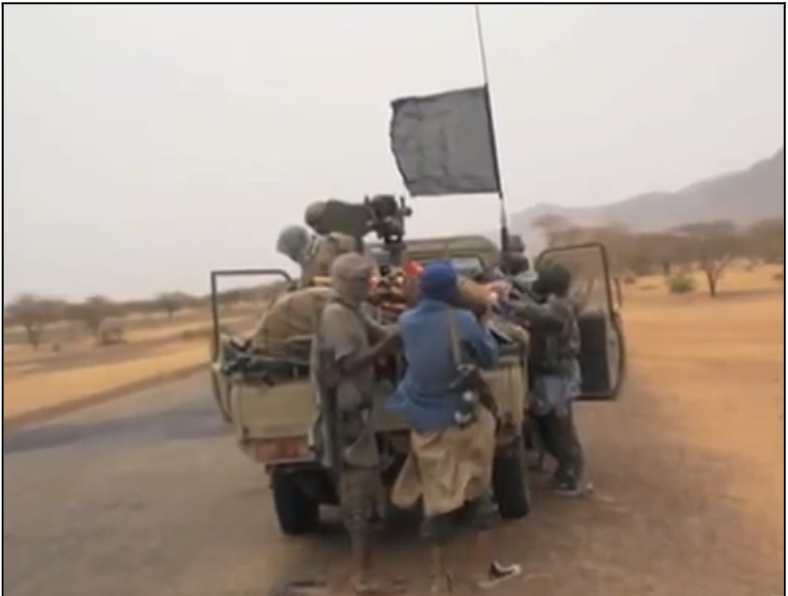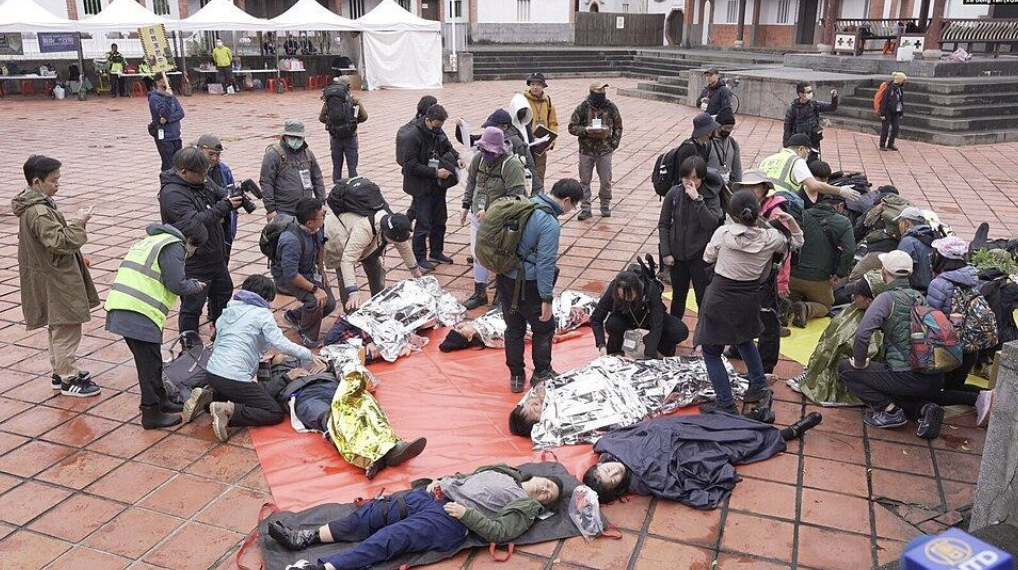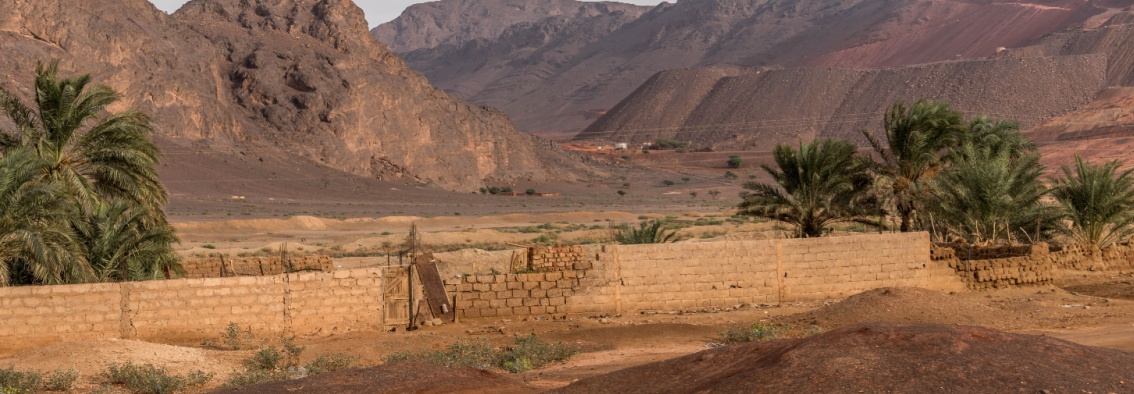Violence in the Sahel Region—a semi-arid geographic region in northern-central Africa, extending from Senegal in the west to Eritrea in the east—has escalated, as manifested by some of the world’s deadliest insurgencies. The conflict is ruthless. Between 2024 and 2025, jihadist groups such as Jamaʿat Nusrat al-Islam wal Muslimin (JNIM), Islamic State in the Greater Sahara (ISGS), and other militias affiliated in ideology have capitalized on weak state control, porous borders, and the overstretched armies of the Sahel countries to terrorize civilian populations. As this is going on, many Sahel states have turned to local militias or civilian auxiliaries to supplement their overstretched security forces, as national armies are unable to protect rural and hard-to-reach communities.
By contrast, Taiwan is confronting a conventional and existential military threat from China, rather than the kind of insurgency ravaging Sahelian countries. Yet, Taiwan has increasingly been emphasizing a whole-of-society defense model that places civilian protection, resilience, and civic participation at the heart of its national security. Under Taiwan’s approach, compelling lessons can be learned by the Sahel states. These include how Sahel states can normalize civilian preparedness, localize supply resilience, employ early-warning technologies, and embed civilian protection into their national security doctrine. Moreover, Sahel states should look to Taiwan for examples as to how the state can rebuild trust between the security forces and society.
As a matter of urgent security recalibration, this article argues that while direct emulation is impossible given differing geographies, political contexts, and threat types, the principles underlying Taiwan’s security model are transferable. Indeed, this may allow Sahel states to avoid defaulting to the practice of relying on local militias.

Image: Islamist insurgents in northern Mali (July 2012). (Image source: Wikimedia Commons)
Civilian Preparedness versus Reliance on Militias
It is important to highlight that Taiwan’s civil defense system is grounded in structures that are legally-binding (such as the Civil Defense Act of 2021), rather than impromptu paramilitary forces. In September 2025, Taiwan released an updated civil defense handbook that clearly expands its wartime scenario planning, with detailed guidance on self-protection, threat typologies, and preparedness measures for its civilian population. In this context, the Taiwan All-Out Defense Mobilization Agency (ADMA, 全民防衛動員署) organizes mobilization initiatives across administrative and military operational areas, integrating civilian groups and reservists with official government coordination. Meanwhile, Taiwan’s “whole-of-society resilience” (全社會整體韌性) initiative further normalizes participation among its civil society, local governments, and businesses in national resilience.
In the Sahel, by contrast, states have suddenly turned to militias to make up for security deficiencies. But this approach carries high risks. For example, Burkina Faso’s Volunteers for the Defense of the Homeland (VDP), expanded by the 2022 junta, now count in the tens of thousands of able-bodied men. Up to this point, these groups have been implicated in abuses, reprisal killings, and the fueling of communal and religious tensions. For example, at least 130 Fulani civilians were reportedly killed by VDP and military personnel in the Solenzo massacre of March 2025. In the Sahel Region, militia expansion often tragically bypasses government safeguards and deepens cycles of fear, political differences, and impunity.
Rather than relying on militias like the VDP and others to fill gaps in the security situation, Sahel countries should seek to institutionalize civil defense under legal frameworks, training, and oversight, akin to Taiwan. Under such a process, Sahel states should also pilot small-scale programs in safer areas, before integrating them with local administrators and gradually expanding them under strict human-rights oversight and accountability mechanisms.
Building Resilience
A central pillar of Taiwan’s approach is making sure that the civilian population can survive a blockade or conflict through distributed and redundant supply systems. Such a civil defense framework mandates stockpiles of essential goods—such as a three-month buffer of staple grains—and the dispersal of reserves across the territory to reduce single points of failure. Taiwan’s doctrine views civilian resilience as a deterrent: if an aggressor cannot collapse society quickly, the cost of conquest rises.
In the Sahel region, supply chains are chronically vulnerable. Jihadist groups regularly intercept or block humanitarian convoys, enforce sieges, and loot food stocks in contested zones. The UN’s Central Sahel report notes that insurgents have blocked humanitarian access in besieged areas, contributing to localized famines and mass displacement. Meanwhile, the collapse or withdrawal of international military or development operations has further reduced logistics output in areas where conflicts hit the hardest.
To build the kind of resilience Taiwan has established over recent years, Sahel countries must localize and diversify supply systems that are currently insufficient. This involves positioning small-scale storage depots closer to vulnerable communities, decentralizing food processing or distribution networks, investing in rural road maintenance, and defining “safe corridors” in contested environments. Mechanisms such as negotiated, monitored humanitarian corridors backed by neutral parties or community consensus can allow essential goods to flow even during conflict situations. Meanwhile, NGOs and international partners with interest in the region should help with logistics design and security protocols that reduce exposure to jihadist attacks.
Leveraging Modern Technology
Taiwan takes advantage of the modern communication and sensor systems at its disposal to deliver real-time alerts and situational awareness to its civilians. Its Public Warning System (災防告警細胞廣播訊息系統) can broadcast through mobile networks, while smartphone apps integrate alerts for air raids, missile threats, typhoons, and other crises that could put people in danger. Taiwan also integrates civilian-military communication networks to share threat data and instructions with local governments and districts.
In the Sahel region, mobile phone penetration is uneven but growing. SMS alert systems are already in use for systems like weather warnings, crop advisories, and health campaigns. To adapt these for security early warnings, states and NGOs could deploy very simple and resilient architectures such as those using SMS or USSD to alert registered local groups. Other options include low-cost radio networks and the community-run “watch stations” that feed alerts into regional nodes. Under such a system, satellite-based messaging might also provide backstop connectivity in remote areas. For that reason, geospatial data and open-source intelligence can allow preemptive warnings when militant activity intensifies. Over time, machine learning may assist in detecting any anomaly patterns in movement or communications. And for communities to play their part, there must be trust that each time warnings appear, they are based on sound judgement and are actionable.

Image: Volunteers with the Taiwan civil defense NGO Kuma Academy conduct first aid training (January 2024). (Image source: Wikimedia Commons)
Prioritizing Civilian Protection
In Taiwan’s doctrine, civilian protection is not an afterthought but woven into the Overall Defense Concept (ODC, 整體防禦概念). The ODC organizes defense around asymmetric, mobile, denial-based warfare, and recognizes that protecting infrastructure, communities, and societal continuity is part of how deterrent value is generated. The concept emphasizes force preservation, dispersal, and denial of territory—rather than high-visibility, centralized “control” operations.
By contrast, in the Sahel, many state-directed military operations prioritize territorial gains, insurgent disruption, and kinetic engagements. Due to that, civilian harm often becomes a common collateral effect, and therefore undermines the long-term legitimacy of the state. For example, the European Institute for Security Studies brief titled “Security Provision and the Protection of Civilians in the Sahel” states that violence against civilians is perpetrated by all parties—the state, insurgents, and self-defense groups alike—and that only a shift to civilian protection could restore state legitimacy. Given these developments, Human Rights Watch and UN investigations have documented repeated abuses by security forces, especially in Mali and Burkina Faso.
For militaries in the Sahel, civilian protection requires a rebalance of doctrine, calling for a revision to the rules of engagement, the adoption of strict accountability protocols, the integration of civilian affairs officers into operations, and the designation of medical, educational, and shelter sites as “no-strike” places. Military operations must be judged beyond their success in capturing territory, they should also factor in civilian safety results.
Rebuilding Trust
Accordingly, Taiwan’s resilience strategy has depended on public buy-in and trust. In 2024, Taiwan’s President Lai Ching-te (賴清德) inaugurated the Whole-of-Society Defense Resilience Committee (全社會防衛韌性委員會), thereby formalizing the bridge between the government, NGOs, academia, and the private sector in its defense resilience planning. In March 2025, Taiwan held a multi-domain civilian defense drill in Tainan, involving 1,500 participants aiming to test capacity to evacuate at-risk populations, offer emergency medicine, and coordinate communications.
In the Sahel, unfortunately, trust between government security forces and communities is deeply fractured. Coup cycles, abuses, neglect of rural areas, and a lack of accountability have rendered communities fearful and sometimes hostile to each other. In fact, Afrobarometer surveys often show that citizens have low confidence in security institutions across Mali, Burkina Faso, and Niger. If nothing is changed, the use of militias without legal oversight will continue to undermine state legitimacy.
Rebuilding trust must start small. For example, joint security-community dialogues, civilian oversight boards, localized “security liaison officers,” and the inclusion of local leaders/elders in planning could mitigate distrust. Security forces should prioritize communication, rapid responses to complaints, and visible accountability for abuses.
Conclusion and Recommendations
Having critically looked at insecurity in the Sahel, I have concluded that Taiwan’s whole-of-society defense model offers a different paradigm for how Sahel states can think about their security—not just through firepower, but through resilience, participation, and civilian protection. While the region’s challenges differ in scale, context, geography, and threat type, some core recommendations remain important:
- Develop civilian preparedness, which is preferable to outsourcing to militias.
- Maintain supply chains that are locally relevant and secure humanitarian routes to protect civilians during conflict times.
- Deploy available early-warning systems to give communities time to act.
- Ensure that the protection of civilians is more than just best practice, but instead is incorporated into doctrine.
- Position trust and accountability as central to the legitimacy of state security.
For the Sahel to adopt a Taiwanese-like security model, it will require strong political will, donor support, cultural customization, and sustained commitment. In an environment where civilian security is already at rock bottom in the Sahel, recalibrating security around civilian protection is ethically necessary. Indeed, it may be the only way to break the unsparing cycles of violence and restore state legitimacy.
The main point: Taiwan has offered a model for civil resilience in Sahel states, where conflict is widespread and civilians are frequently the targets of violence. Sahel states that are interested in protecting civilians, especially in rural areas, must emulate Taipei’s trust-building approach that emphasizes community buy-in, through measures such as Taiwan’s Whole-of-Society Defense Resilience Committee and the Civil Defense Act.




